LIA Week 1 🍊🧿🌱
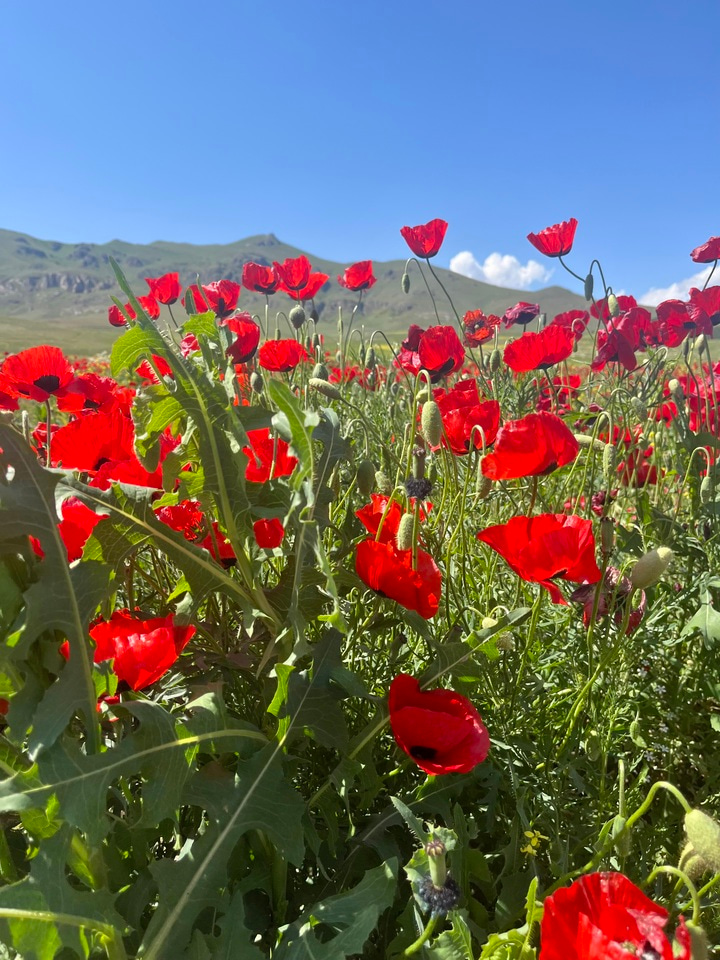
I started my internship with the Women’s Support Center (Կանանց աջակցման կենտրոնը) this Monday and have already learned so much about the gender politics of Armenia. The WSC is the leading domestic violence (DV) center in all of Armenia, with full-service DV shelters operating in nearly every single region of the country. It aims to provide holistic support to survivors of DV, including legal support, social services, skills-based training, and educational support for the children of DV survivors. The center operates on an empowerment model that is victim-centered and based on the principles of self-determination and autonomy, providing clients with the encouragement, resources, skills, and validation to make their own decisions regarding their specific cases, rather than telling survivors what to do (i.e. outright telling them to leave an abusive relationship). Critically, the WSC maintains that the power of the abuser/perpetrator should never be replaced by the power of the institution, and as such, the center emphasizes the need to act with the survivor, rather than for them.
The WSC faces extreme challenges, as Armenia is a heavily patriarchal society that is centered around the traditional family as a basic unit of the nation. Especially as a post-Soviet country, many Armenians cling to traditional norms, including gender roles, as a way to maintain the “integrity” of the Armenian nation, which has created a right-wing movement that mobilizes people around the moral panic of “gender,” leading to the word “gender” being banned in Armenian legislation. Furthermore, while Armenia has relatively accessible and affordable abortion services, contraceptives are not nearly as available, and the country experiences a high rate of sex selective abortion resulting in high birth masculinity. These patriarchal structures and attitudes have created a climate where DV is often dismissed, downplayed, or even outright justified (“the victim deserved it because…”).
Moreover, while Armenia has adopted a DV law in 2017 (amended in 2014), it has yet to ratify the Istanbul Convention, the predominant international treaty on DV, leaving several concerning gaps in the country’s approach to DV. For example, DV is not specifically criminalized in Armenia, which makes it difficult to hold perpetrators accountable, although crimes motivated by sex or committed by an intimate partner or family member are considered an aggravating circumstance in prosecution. Furthermore, while the 2024 amendments have incorporated a broader definition of DV including physical, sexual, economic, and psychological violence, the DV law does not include the specific dynamics of DV as rooted in power imbalance and coercive control, which means that some DV survivors who engage in self-defense against their abusers can also be prosecuted as perpetrators. Other gaps include prevailing victim-blaming attitudes among judges and law enforcement, the pervasive attitude that “family matters” are private and should not be interfered with, and the desire to prioritize family reconciliation over the safety of the survivor and children.
In my capacity as a summer intern for the WSC, my first task is to assist with the development of a training module for judges in the Armenian court system on how to specifically handle DV cases. Unlike the US, Armenia has no family court system, so DV cases appear in criminal and civil courts in front of judges who have very little knowledge on the dynamics of DV. As a consequence, DV-related cases often drag on for years with no concern for the time-sensitive nature of such cases and the continued risk posed to the survivor. As such, I will be studying the current gaps in Armenian legislation with specific respect to the courts, in addition to examining the DV training modules for judges in other countries to get an understanding of the international best practices. My goal is to create a summary report outlining key training modules, best practices, gaps, and relevance to the Armenian context.
The WSC office in Yerevan is an extremely warm and welcoming environment, in a spacious house in the Arabkir district of the city. Every morning, I arrive just in time to drink sourj (Armenian coffee) and do my best to chat in Armenian with my coworkers as Sofik, one of the eldest members at the center, rolls grape leaves for dolma. Around noon, we all gather in the kitchen again to eat a home-cooked lunch as a group, followed by another coffee break, this time with sweets such as the Armenian pastry gata. We usually end up talking politics, especially with the outbreak of war in Iran just across the border.
This Friday, I took a day trip outside of Yerevan with Araz, a PhD student from San Diego who is conducting focus groups at each regional WSC center to evaluate survivors’ feedback on the services they have received from WSC. Together with Datev, one of the social workers, we went to Vanadzor, the third-largest city in Armenia, and held a 2-hour focus group with survivors, which was an extremely emotional and valuable experience. On the beautiful drive back through the beautiful mountain roads, our driver pulled over so Araz, Datev, and I could take pictures in a field of wildflowers!
Outside of the office, I have been super busy exploring Yerevan; finding the best places to eat manti, Armenian dumplings, and lahmajun, Armenian pizza; looking for the best coffee, lemonade, and fruit (the mulberries and apricots are to die for); and seeing all the main sites, including the fountain show at Republic Square, the Cascade steps and art museum, the Opera house, and more. Together with other interns associated with the Armenian Assembly of America, I got to visit the National Assembly of Armenia parliament building and have a discussion about Artsakhtsi refugees with one of the representatives. Also, I am taking traditional dance classes entirely in Armenian, which has been a challenge, but so rewarding! Finally, every night I come home to a beautiful view of the Blue Mosque from my apartment—the only remaining Iranian mosque in Yerevan.
Altogether, I can’t believe I am really here, and I am so excited to see what the rest of the summer brings!
@Barnard College

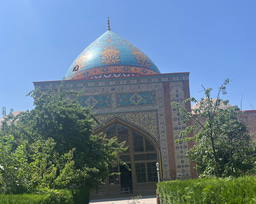
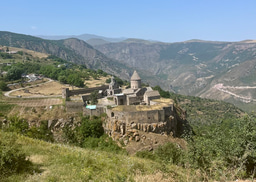
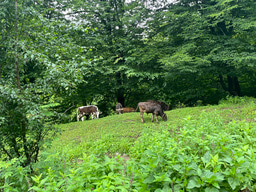
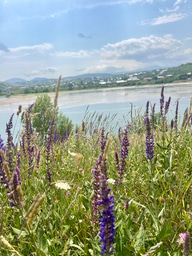
Please sign in
If you are a registered user on Laidlaw Scholars Network, please sign in
This is such interesting and impactful work Sophia! I love hearing how impactful conversations over dolma and soorj can be :)
We need to keep up the tradition once I'm back in NY ;)
You are absolutely incredible, and I can't wait to see where the rest of the summer takes you! I am also personally requesting we find the best Armenian food back in New York, because this post made me want lahmajun!!
We should check out Little Armenia Cafe in Greenpoint! I still haven't had the chance to go, but I've heard good things